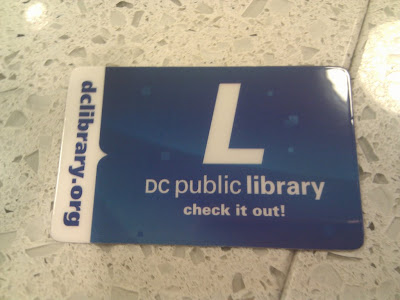 (FX Networks)
(FX Networks)
Tonight FX will air its final episode of
Lights Out, a show about former heavyweight champion Patrick Leary (Holt McCallany) who faces getting back in the ring at age 40 or financial ruin.
Though the storyline about how Leary and his family are on the brink of bankruptcy mainly exists to facilitate Leary's ultimate showdown with "Death Row" Reynolds (Billy Brown), the challenges of tax audits and looming bankruptcy that Leary faces in the series are all to real for most former athletes.
In 2009,
Sports Illustrated ran a feature article about why so many athletes go for broke. In it, the author, Pablo Torre, notes that "the closest analogy to a pro athlete is not a white-collar executive. It's a lottery winner—who's often in his early twenties."
The odds seem stacked against former athletes, since Torre noted that 78 percent of former NFL players go bankrupt or are under financial stress after two year of retirement. In that same amount of time, 60 percent of former NBA athletes face the same challenges. Even MLB players, with their cap-less salaries, aren't immune from this reality and several former big leaguers have gone broke after their retirement.
Torre's article doesn't touch on former boxers, but given that boxing is a tightly controlled industry with a few major players betting on the boxing skills of mostly poor and minority athletes, it wouldn't be surprising if they fare the same or worse as the more mainstream athletes. The
BBC profiled former boxer Evander Holyfield after he filed for bankruptcy on his 109-room home in the suburbs of Atlanta and noted Holyfied's situation is common among former boxers.
Going through the reasons Torre offers for why athletes go broke so quickly, the fictional Leary story seems to hit on every one.
The Lure of the Tangible
Leary and his brother decide to invest in commercial development project, but as the housing market crumbled, so did their investment. The Leary family also live in a self-built sprawling suburban home in New Jersey, send their daughters to a private Catholic school, hold onto a private boxing gym, and promise to make generous donation to their church's relief efforts in Haiti. They never mention stocks, mutual funds, or bonds.
True, Leary invests in his wife Theresa's medical school (Catherine McCormack), something that could put the family back on track to financial balance, but it seems much of what Leary invested his money in is what Torre called "the thrill of tangibility." Torre wrote, "Financial advisors have come to call it 'the problem of the $20,000 Rolex.' If a 22-year-old spends $22,000 on a watch or a big night out at a nightclub, that money is either depreciating or gone."
Misplaced Trust
This is a big plot point in Lights Out, especially early on in the series. Leary places ultimate trust in his brother, Johnny (Pablo Schreiber), who promptly whittles Leary's earnings away with poorly placed gambling bets and bad financial management. It's Johnny's tax evasion that lands the Learys in trouble with the IRS.
Torre writes that it is often poorly qualified friends or family members that are charged with managing an athlete's money, and they often mis-manage it. Even when it isn't family members who are charged with finances, it's often someone else of emotional importance in the player's life—in one case, it was an NBA player who gave that power to his former Amateur Athletic Union coach. Again, this problem is widespread. Torre wrote, "In fact, according to the NFL Players Association, at least 78 players lost a total of more than $42 million between 1999 and 2002 because they trusted money to financial advisers with questionable backgrounds."
Family Matters
The financial strain also creates a rift between Leary and his wife, and they even separate for a time on the show. Though Leary and his wife eventually make up, it's clear that such a separation would be financially—as well as emotionally— devastating.
According to Torre's reporting, a survey conducted in 2008 by a financial services firm found that more than 80 percent of 178 athletes they polled reported they were concerned about potential lawsuits or divorce dealings. "By common estimates among athletes and agents, the divorce rate for a pro athlete ranges from 60 percent to 80 percent," Torre wrote.
Great Expectations
Leary is the sole supporter for his large and demanding family. Not only is his erstwhile fortune expected to pay for his family's house and expenses while his wife gets through medical school, but he has three daughters who are all planning to attend college, a gym to keep his father—and former coach—busy in retirement, and a diner he owns but his sister runs. Leary's new coach, Ed Romeo (Eamonn Walker), stares at Leary in amazement as he explains how he's supporting his wife, children, father, brother, and sister. The family pushes Romeo out through some manipulation of Leary.
Again, this problem seems widespread, with new and old faces showing up to get a cut of the athlete's earnings. "As soon as an athlete goes pro, people in search of handouts tend to stretch the definitions of family and friends." The large promised donation to the church in Haiti wasn't just volunteered out of the blue by the Learys; the church sought them out as potentially wealth members of the congregation even as they faced a costly IRS audit.
Though Lights Out wasn't a perfect show, often mimicking the plotlines of the Oscar-nominated film The Fighter so closely I still sometimes confuse the two, but I'll be sad to see it go. In an era where Hollywood is trying to capitalize on putting the realities of the recession in various ways on television shows, it's nice to see a show take on a very real and complicated issue like disappearing athlete finances.
 (Miramax Films)
(Miramax Films)







